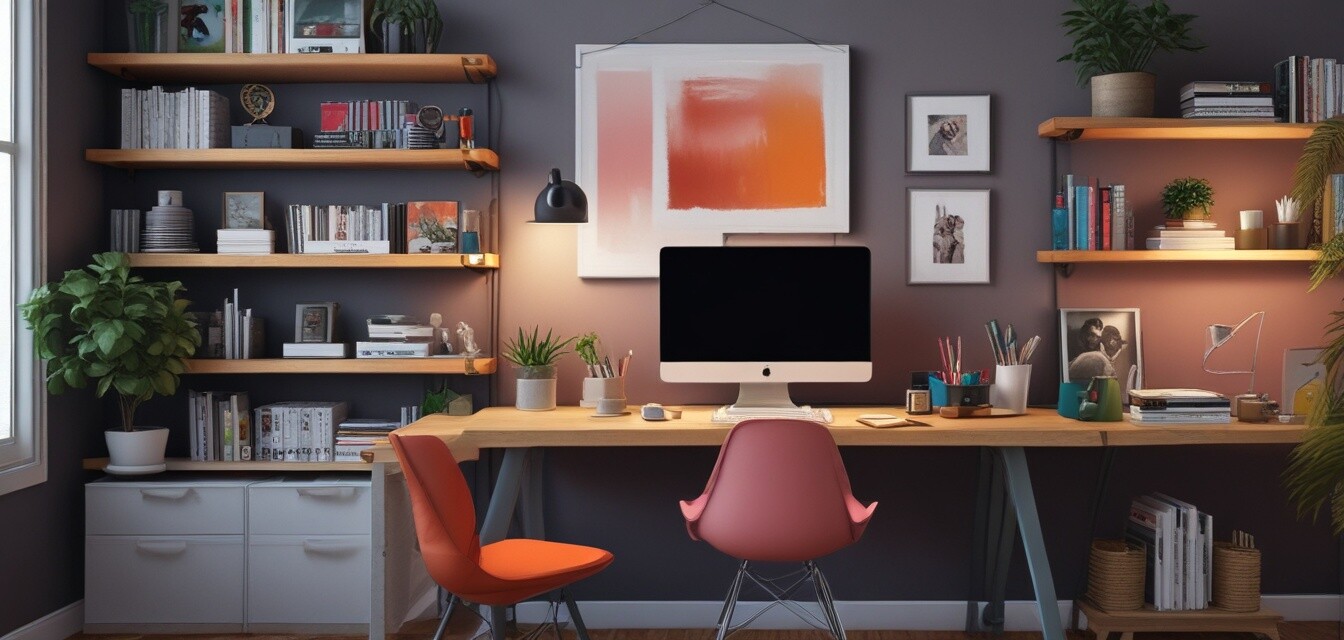
Fun Ways to Organize Your Office Using Color
Key Takeaways
- Using color can enhance organization and visual appeal in your home office.
- Incorporate color coding to categorize and improve workspace efficiency.
- Choose color palettes that inspire creativity and focus.
Organizing your home office can be a daunting task, filled with papers, gadgets, and assorted supplies. However, one effective way to make this daunting task easier is by incorporating color into your organization strategy. Using color strategically not only adds an aesthetic pleasing touch but also simplifies the way you categorize your items. Let’s explore some fun and effective ways to organize your office using color!
The psychology of color in organization
Colors can influence your mood and productivity. Here are some popular colors and their associations in a work setting:
| Color | Association | Use Case |
|---|---|---|
| Blue | Calming and focus | Ideal for workspaces requiring concentration |
| Green | Relaxing and restorative | Great for reducing stress |
| Yellow | Energetic and uplifting | Perfect for creative spaces where ideas flow |
| Red | Bold and stimulating | Encourages passion and action |
Ways to organize using color
1. Color-coded storage solutions
Use colorful bins, boxes, or file folders to categorize your items. For instance:
- Red for urgent tasks: Use red storage boxes for items that require immediate attention.
- Blue for important documents: Organize your financial and legal documents in blue folders.
- Green for everyday tools: Keep supplies like pens, scissors, and tape in green containers.
2. Vibrant desk accessories
Introduce colorful desk accessories such as:
- Pens and pencils: Use a variety of colored writing tools to make notes more fun.
- Mouse pads: Choose a colorful mouse pad that complements the overall desk setup.
- Organizer trays: Opt for multi-colored trays for neat storage of miscellaneous items.
3. The color wheel for organization
Utilizing a color wheel can guide you in creating a harmonious office design. Consider the following:
- Complementary colors: Choose colors that are opposite each other on the wheel for maximum contrast.
- Analogous colors: Use colors next to each other on the wheel for a cohesive look.
- Monochromatic schemes: Stick to variations of a single color for a sleek and modern vibe.
Creating a color palette
Creating a visual identity for your office is key. Consider the following steps:
- Choose a primary color that resonates with you.
- Add two to three complementary colors for accents.
- Incorporate neutral tones (like white or gray) to balance vibrant colors.
DIY: Personalized color coding
Engage in a fun DIY project by customizing your own color-coded labels for files and boxes:
- Print or create labels in various colors.
- Use stickers or markers to mark item types or urgency levels.
- Attach color-coded labels to bins and drawers for quick identification.
Investing in colorful office equipment
Finding colorful computer peripherals can enhance the workspace. Visit our page on computer peripherals for unique options that match your color scheme.
Practical tips for maintaining your color organization system
Beginner's tips
- Keep your color scheme consistent across different areas of your office.
- Regularly declutter and rearrange items to stay organized.
- Involve family members in maintaining the system for additional accountability.
Conclusion
By employing color as a tool for organization, you can create a workspace that not only looks great but also functions efficiently. Remember that your office is a personal reflection of you, so have fun with colors and let your creativity shine! Explore more about home office setups and product solutions in our audio equipment and docking stations categories.
Pros
- Boosts creativity and productivity.
- Visually appealing and personalized environment.
- Easy to implement with simple tools.
Cons
- Over-using color may lead to distractions.
- Requires ongoing maintenance and organization.